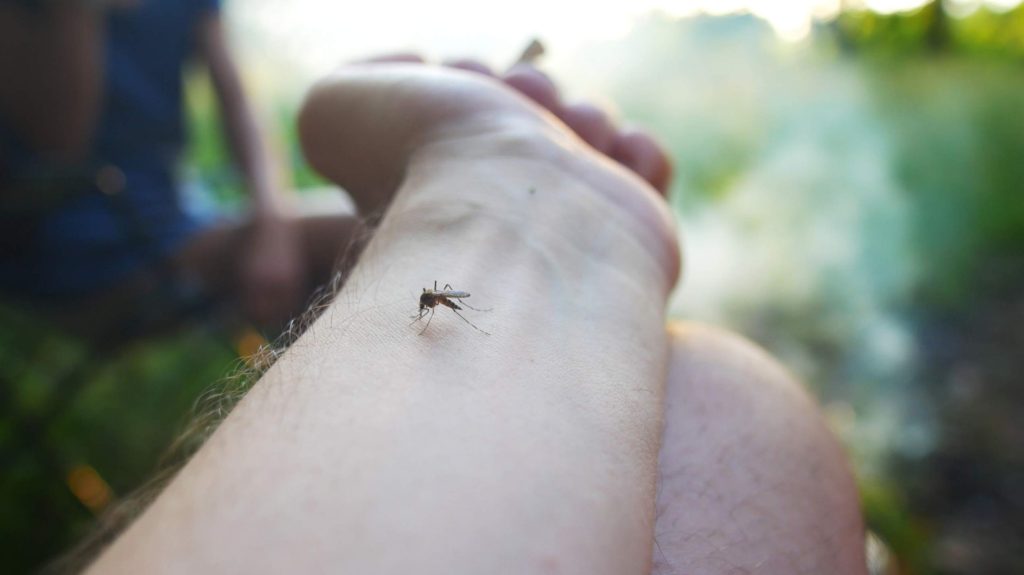
Spending time outdoors can be refreshing, whether it is walking in the countryside, gardening, or travelling abroad. However, mosquitoes and ticks can carry infections that may cause illness if you are bitten. Taking simple steps for mosquito bite prevention and tick bite prevention can help protect your health.
Why Mosquito and Tick Bites Can Be Risky
Mosquitoes and ticks are not just irritating pests. They can spread infections that make people very unwell. In some parts of the world, mosquito bites can cause malaria or dengue. In the UK, mosquito bites are less serious but still unpleasant, often causing itching, swelling, and discomfort.
Ticks are more common in grassy, wooded, or rural areas. A tick bite can spread Lyme disease, a condition that causes flu-like symptoms and, if untreated, may lead to joint pain or nerve problems. This is why knowing how to prevent tick bites is so important, especially if you enjoy hiking or camping.
Essential Tick Bite Prevention Tips
Tick bite prevention begins with being cautious when outdoors in areas where ticks are likely to be present. Here are some steps you can take:
- Wear long sleeves and trousers when walking through grassy or wooded areas.
- Tuck your trousers into your socks to stop ticks crawling onto your skin.
- Use an insect repellent that protects against ticks.
- Check your body and clothing for ticks after being outdoors.
- Remove any ticks quickly with a proper tick removal tool.
These simple steps can reduce your risk of tick-borne diseases such as Lyme disease.
Mosquito Bite Prevention Tips to Keep You Safe
If you are travelling abroad, mosquito bite prevention becomes especially important. Even in the UK, bites can be annoying and sometimes cause skin infections from scratching. Useful prevention tips include:
- Use insect repellent sprays or creams on exposed skin.
- Wear light-coloured clothing with long sleeves and trousers.
- Sleep under a mosquito net when travelling in high-risk areas.
- Avoid standing water near your home or accommodation, as this is where mosquitoes breed.
- Keep windows and doors closed in the evenings or use insect screens.
These precautions help reduce your risk of infection and provide peace of mind when outdoors or travelling.
What to Do If You Are Bitten
If you are bitten by a mosquito, clean the area and avoid scratching to reduce irritation. Anti-itch creams can help calm swelling.
If you find a tick on your skin, remove it as soon as possible with a tick removal tool. Do not squeeze the tick or try to burn it, as this can increase the risk of infection. After removal, clean the area with antiseptic. Watch for any signs of tick-bite diseases such as fever, rash, or tiredness, and seek advice from our pharmacists if you are concerned.
Travel Vaccinations and Local Support
If you are planning a trip to an area where mosquito-borne diseases are common, vaccines and preventative medicines may be needed. At Aroga Pharmacy’s travel vaccination clinic, our experts can guide you to make sure you have the right protection for your destination.
Trusted Support for Bite Prevention and Travel Health
Being prepared is the best way to stay safe from infections spread by mosquitoes and ticks. A few simple habits, such as wearing protective clothing, using repellent, and checking your skin after outdoor activities, can make a big difference.
For those living in Slough or Fulmer, appointments are available at Aroga Pharmacy in Farnham Common today. Our experts can provide guidance on tick bite prevention, mosquito bite prevention, and travel health support so you can enjoy your time outdoors with confidence. Book your appointment today.
